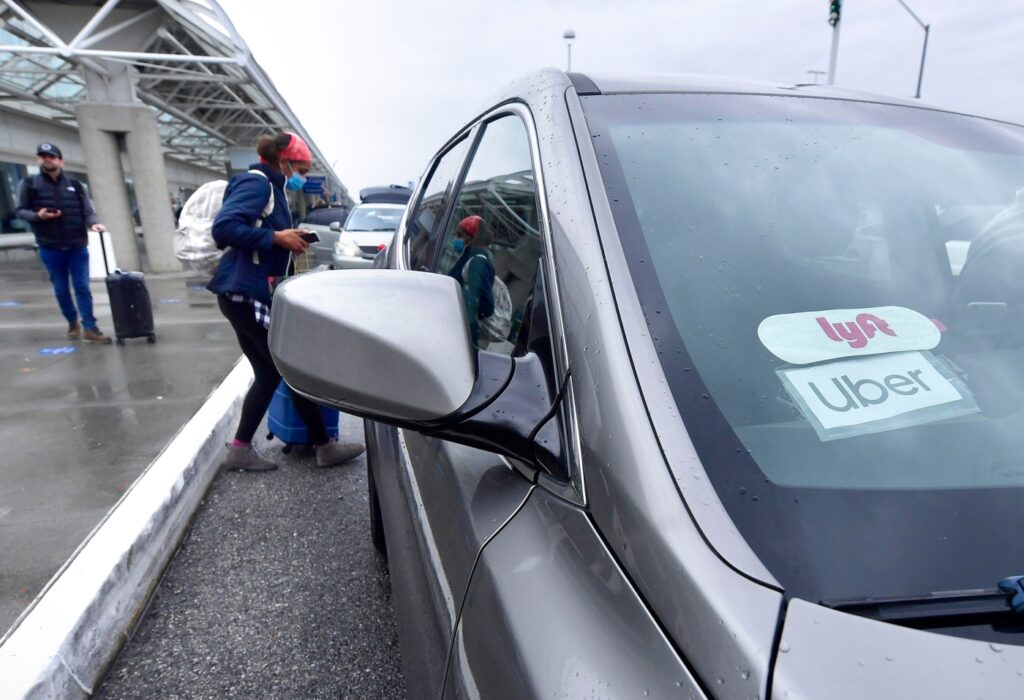
Despite a series of legal challenges from Big Labor groups, a recent California appeals court issued a ruling upholding Proposition 22’s constitutionality. This is a win for the gig economy and for freelancers nationwide who comprise a growing share of the U.S. workforce.
Prop. 22 is a 2020 ballot measure designed as a direct rebuke of California Assembly Bill 5 (AB 5) which forcibly reclassifies the majority of the Golden State’s independent contractors, including rideshare drivers, as W-2 employees under an onerous ABC test that makes it harder for workers to prove they aren’t default traditional employees. The measure proposes to protect the independent contract status of rideshare app drivers, and was approved by 58% of California voters.
Nevertheless, in November of the same year, a trial court ruled Prop. 22 unconstitutional. Had the trial court successfully rejected the measure, rideshare app drivers would have been subject to the full AB 5 regulations as well as worker exemptions established by the subsequent AB 2257.
But on March 13, a three-judge panel in San Francisco invalidated the trial court decision, contending that AB 5 is unconstitutional because it singles out certain industries but exempts others. Prop. 22 will live to protect contractors’ status for another day.
This California provision will protect independent workers from being regulated out of existence for the apparent crime of choosing the 1099 life over a W-2 job.
Lawmakers must now pursue policies that will help private contractors to flourish.
Opponents of the gig economy falsely assume Uber and Lyft drivers, like other independent contractors, are wholly misclassified and need to return to traditional W-2 status. Under the current standards established by AB5, to prove independent status, a worker must fulfill the following conditions:
•The worker is free from the control and direction of the hiring entity in connection with the performance of the work, both under the contract for the performance of the work and in fact;
•The worker performs work that is outside the usual course of the hiring entity’s business; and
•The worker is customarily engaged in an independently established trade, occupation, or business of the same nature as that involved in the work performed.
On top of exempting app-based drivers from these restrictions, Prop. 22 also offered them certain worker benefits that gives them a safety net without jeopardizing their independent status, countering claims by AB 5 supporters that they are misclassified by companies like Uber and Lyft.
In stark contrast to these claims, studies reveal that most people classify rideshare app drivers as private workers. When polled about rideshare driver classification, most respondents — rideshare drivers and non-rideshare drivers alike — view them as independent contractors and not employees. A comprehensive December 2021 survey from the Pew Research Center titled “The State of the Gig Worker” found that 62% of Americans view app-based drivers as independent workers while 65% of gig workers self-identify as independent contractors and not employees. An October 2022 Morning Consult poll also found that 77% of app-based workers desire to maintain their independent status.
Labor policy should embrace innovation, not hamper growth as AB 5 and its federal companion the Protecting the Right to Organize (PRO) Act do. That’s where reforms like portable benefits would help.
Creating a portable benefits system will allow gig workers, including app-based drivers, to access affordable insurance coverage options without jeopardizing their independent worker status. To preserve their independent status, most independent workers obtain insurance on their own or through a spouse. Portable benefits would allow them flexibility and autonomy, and act as a bulwark against forced reclassification efforts like AB 5 and the PRO Act.
Related Articles
Progressives should realize that overregulation can upend their policy preferences, too
Union bill would erode voting rights
The crusade against ‘malinformation’ explicitly targets inconvenient truths
John Seiler: We at the Orange County Register were right to oppose the Iraq war 20 years ago
Businesses using AI tools: Letters
Portable benefits systems are already taking off in state legislatures. This past session, Utah successfully passed legislation to unleash a portable benefits model in the Beehive State. The bill currently awaits Gov. Spencer Cox’s signature. He has until March 23, 2023, to sign or veto the bill. Should it proceed, the voluntary program would directly tie benefits accounts to individual workers, deriving funds from multiple sources of contributions.
These legislative successes indicate the staying power of freelancing. By 2027, half of the U.S. workforce is expected to engage in independent contracting on a full-time, part-time, or occasional basis. And over 60 million freelancers — 39% of the U.S. workforce — now partake in gig work and have an impressive $1.3 trillion economic footprint.
Flexible work arrangements are positively shaping the economy and providing an economic lifeline to Americans displaced by the COVID-19 pandemic and rising inflation. Let’s continue to allow workers, especially app-based drivers, the freedom to determine their schedules and maintain their independence.
Gabriella Hoffman is a regional leader for Young Voices and full-time freelancer based in Virginia. Follow her on Twitter at @Gabby_Hoffman.
